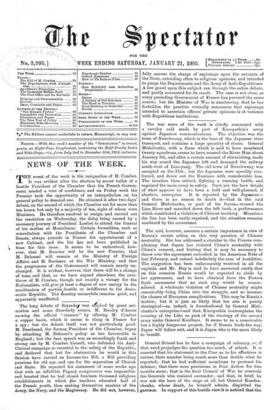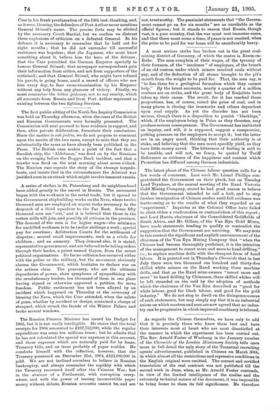General Stiise,e1 has to face a campaign of calumny, or,
if that word prejudges the question too much, of attack. It is asserted that his statement to the Czar as to his effectives is untrue, their number being much more than double what he reported; that he had sufficient munitions to protract his defence; that there were provisions in Port Arthur for two months more; that in the final Council of War he overrode the Generals who resisted surrender ; and that, in brief, he was not the hero of the siege at all, but General Kondra- chenko, whose death, he himself admits, dispirited the garrison. In support of this hostile view it is noticed that the
Czar in his frank proclamation of the 14th inst. thanking, and, as it were, blessing, the defenders of Port Arthur never mentions General Stossel's name. The precise facts may be elicited by the necessary Court-MArtial, but we confess we distrust these explosions of criticism on a defeated General. In his defence it is necessary to remember that he held out for eight months ; that he did not surrender till successful resistance was hopeless ; that the Japanese, who must know something about it, believe him the hero of the defence ; that the Czar permitted the German Emperor specially to honour General Stossel; that newspaper correspondents gain their information from critics, and not from supporters of the criticised ; and that General Stossel, who might have refused his parole, is going home, amid a crowd of officers who saw him every day, to face cross-examination by his Emperor without any help from any glamour of victory. Finally, we must remember the bitter jealousy, not to say enmity, which all accounts from Russia and from Port Arthur represent as existing between the two fighting Services.







































 Previous page
Previous page